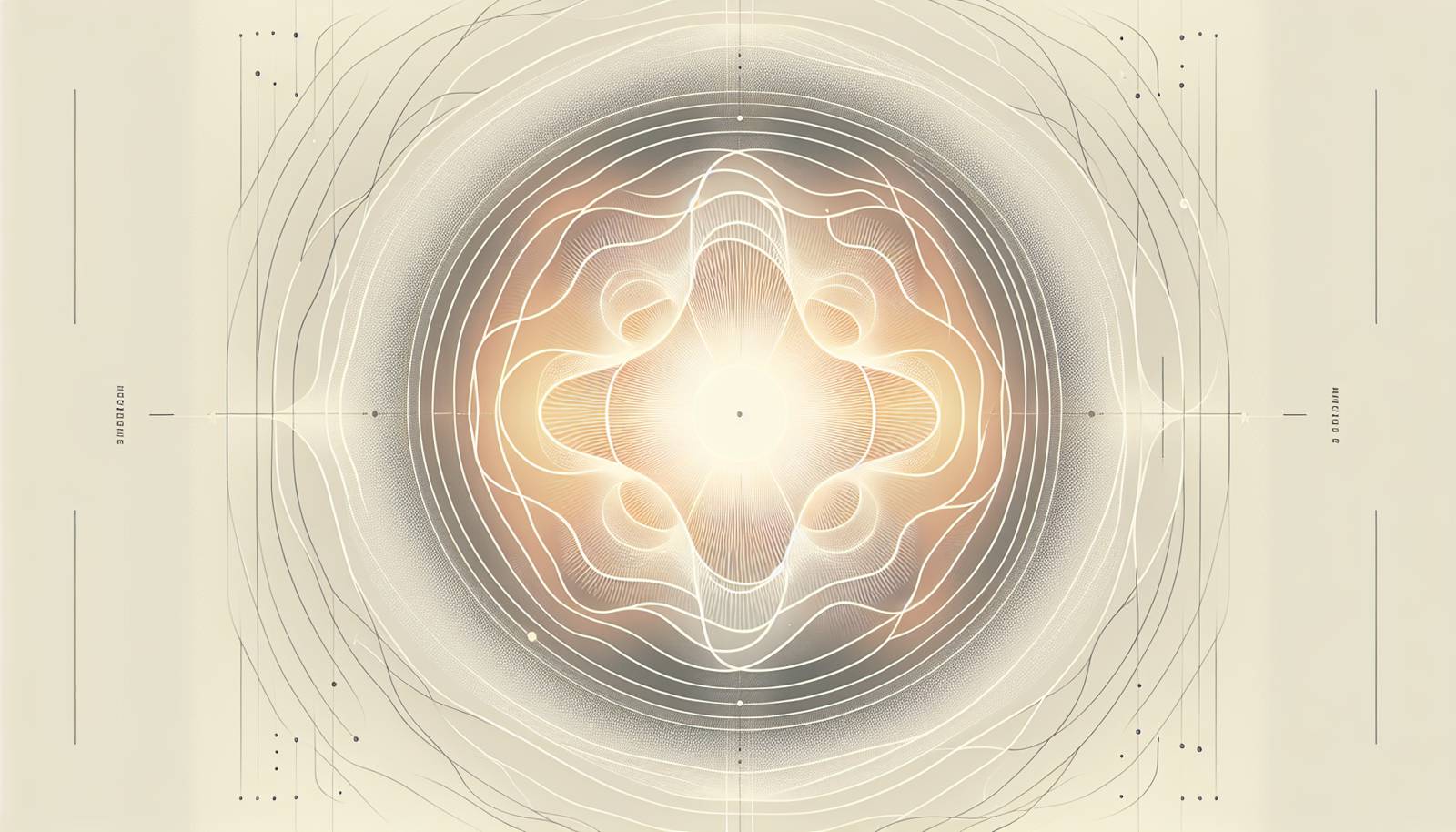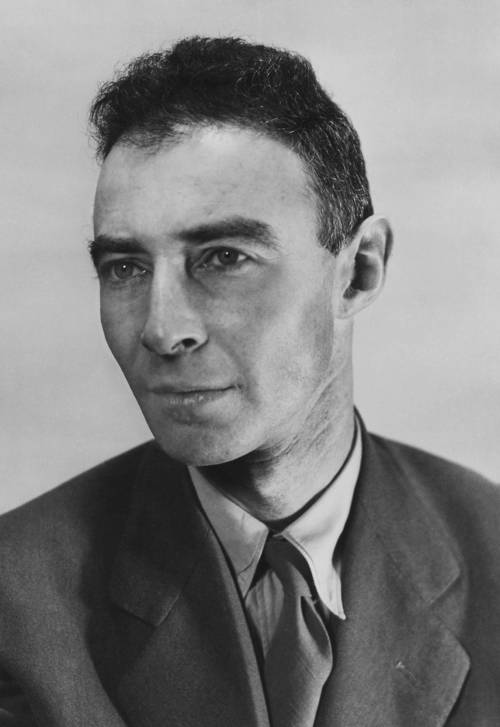
FAQ About J. Robert Oppenheimer

Who was J. Robert Oppenheimer?
J. Robert Oppenheimer was a prominent American theoretical physicist renowned for his role as the head of the Los Alamos Laboratory during the Manhattan Project, the World War II undertaking that developed the first nuclear weapons. He is often referred to as the 'father of the atomic bomb.'

What was J. Robert Oppenheimer's role in the Manhattan Project?
J. Robert Oppenheimer served as the scientific director of the Manhattan Project, where he led the efforts to develop the first atomic bombs. He was responsible for overseeing the research and development at the Los Alamos Laboratory in New Mexico, where the bombs were designed and constructed.

Why is J. Robert Oppenheimer called the 'father of the atomic bomb'?
Oppenheimer is called the 'father of the atomic bomb' because he played a pivotal role in the creation of the first nuclear weapons through his leadership in the Manhattan Project. His efforts culminated in the successful test of an atomic bomb in July 1945, ultimately leading to the bombs dropped on Hiroshima and Nagasaki.

What impact did J. Robert Oppenheimer have on science and technology?
Oppenheimer's work on the atomic bomb significantly impacted science and technology, leading to the development of nuclear energy and weaponry. Beyond the bomb, he advocated for international control of nuclear power and contributed to fields such as theoretical physics, offering insights into quantum mechanics and particle theory.

How did Oppenheimer feel about the atomic bomb after World War II?
After World War II, Oppenheimer expressed deep concerns about the use of nuclear weapons. He famously remarked, "I am become Death, the destroyer of worlds," quoting the Bhagavad Gita. Over time, he advocated for control over nuclear power and expressed regret over the destructive potential of the technology he helped create.

What were some of J. Robert Oppenheimer's other scientific contributions?
In addition to his work on nuclear physics, Oppenheimer made significant contributions to quantum mechanics, astrophysics, and the theory of black holes. His early work included studies on positrons and cosmic rays, and he later collaborated on theories regarding neutron stars and quantum field theory.

What education did J. Robert Oppenheimer receive?
Oppenheimer was highly educated, attending Harvard University where he studied chemistry before switching to physics. He earned his Ph.D. in physics under Max Born at the University of Göttingen in Germany, studying alongside notable physicists such as Werner Heisenberg and Enrico Fermi.

What was the 'Oppenheimer Security Hearing'?
The 'Oppenheimer Security Hearing' refers to the 1954 investigation by the U.S. Atomic Energy Commission (AEC) into Oppenheimer's loyalty and security clearance. Controversy over his opposition to nuclear weapons proliferation and former associations led to the revocation of his security clearance, marking a significant event in Cold War history.

Why was J. Robert Oppenheimer's security clearance revoked?
Oppenheimer's security clearance was revoked in 1954 by the U.S. Atomic Energy Commission due to suspicions raised during the McCarthy era. His previous associations with communist organizations, his opposition to thermonuclear bomb development, and concerns over his loyalty contributed to this decision, though no evidence of espionage was ever found.

What is the significance of Oppenheimer's quote "Now I am become Death, the destroyer of worlds"?
This quote, which Oppenheimer recalled from the Hindu scripture Bhagavad Gita, was his reaction to witnessing the first successful test of an atomic bomb. It reflects his awareness of the immense destructive power of the weapon and the moral implications of his work on the Manhattan Project.

Did J. Robert Oppenheimer win any prestigious awards?
Yes, Oppenheimer received several prestigious awards throughout his career, including the Enrico Fermi Award in 1963, which was presented to him as a gesture of political rehabilitation after his controversial security hearing. He was also elected to the American Academy of Arts and Sciences and other scholarly organizations.

How did Oppenheimer influence post-war nuclear policy?
After the war, Oppenheimer became a strong advocate for the regulation and control of nuclear weapons, playing a vital role in the establishment of the U.S. Atomic Energy Commission. He advised on policy through forums like the United Nations, arguing for international oversight of nuclear technology to prevent proliferation.

What was Oppenheimer's stance on the use of atomic weapons during World War II?
Initially, Oppenheimer supported the development and use of atomic weapons during World War II as a means to hasten the end of the conflict. However, he later expressed ambivalence about the bomb's usage, advocating for peace and reflecting on the ethical implications of nuclear armament.

Where did Oppenheimer spend his later years after his work on the atomic bomb?
After his work on the atomic bomb, Oppenheimer became a director at the Institute for Advanced Study in Princeton, New Jersey. He spent his later years engaged in teaching, conducting research, and speaking on global peace and nuclear disarmament until his death in 1967.

What were some controversies surrounding Oppenheimer during his career?
Oppenheimer was involved in several controversies, including his leftist political associations in the 1930s, his later opposition to the hydrogen bomb, and the revocation of his security clearance in 1954. These controversies reflected broader tensions in the U.S. during the Cold War, particularly concerning nuclear policy and security.

How is J. Robert Oppenheimer remembered today?
Today, Oppenheimer is remembered as a pivotal figure in the history of science and nuclear technology. He is recognized for both his groundbreaking contributions to physics and the ethical debates prompted by his role in developing nuclear weapons, which continue to inform discussions on the responsible use of scientific advancements.

What was the outcome of the Manhattan Project?
The Manhattan Project culminated in the successful development of the first atomic bombs, which were subsequently used on the Japanese cities of Hiroshima and Nagasaki in August 1945. These events significantly contributed to the end of World War II but also initiated global discussions on nuclear armament and its consequences.

Did Oppenheimer write any books or papers?
Oppenheimer wrote several scientific papers and contributed to many important discussions on quantum mechanics and nuclear physics. However, he did not author any popular books but his thoughts and ideas have been featured in numerous publications and biographies written about him and his work.

What is the legacy of J. Robert Oppenheimer in modern science?
Oppenheimer's legacy in modern science is profound. He significantly influenced theoretical physics and nuclear research, and he remains a central figure in discussions on the ethical responsibilities of scientists. His life and work continue to inspire debates on scientific innovation's impact on society and international policies.

Is there a museum or landmark dedicated to J. Robert Oppenheimer?
The Los Alamos Historical Museum in New Mexico features exhibits on the Manhattan Project and Oppenheimer's role, showcasing documents, artifacts, and stories from that era. Additionally, his contributions are commemorated at the Trinity Site, where the first atomic bomb was tested.
